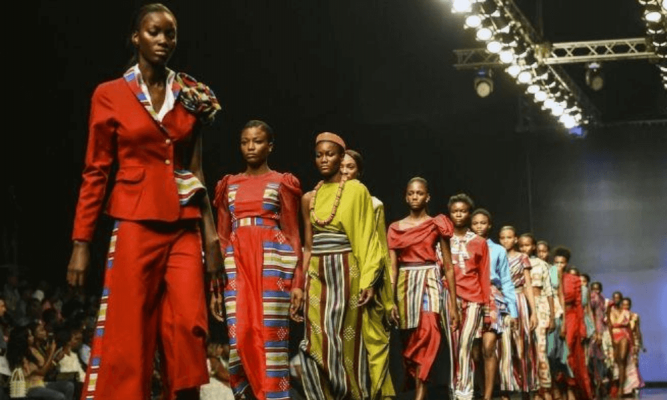Stakeholders in the women’s fashion industry have called for innovation and sustainability to boost the quality of locally made garments and enable the country to compete in the African and global markets.
In separate interviews with The PUNCH at the unveiling of the Garment Innovation and Sustainable Production Hub in Lagos on Friday by the Association of Women in Fashion Tech, these stakeholders highlighted the role of innovation and sustainability in increasing the value of Nigerian fashion products. WIFT unveiled its Garment Innovation and Sustainable Production Hub with the Central and Eastern European and West African Business Association and UN Women.
The President of WIFT, Bukola Ajani, noted that the hub would provide a collaborative space for fashion entrepreneurs to improve product quality, protect intellectual property, and promote eco-friendly production.
She said, “We discovered that it is important that we have a space for our community, where they can work together as a team, share ideas, share knowledge, and come up with something innovative enough to work with.
“We must protect our innovative designs, and one thing that we did was to build a blockchain-based virtual try-on store where you don’t even need to wear the physical clothes. We also just finished working on our banana fiber Asoke, where we use banana fiber for Asoke production.”
She explained that the hub, located at the Isheri North GRA, aims to provide designers with a working space and some accommodation for projects. “The hub is for our members, but it’s equally open to the public. So, if you don’t have a machine, you don’t even need to break the bank to set up your facility. You can come to our hub for your production,” the President of WIFT noted.
Ajani, also the Chief Executive Officer of Garment Business Consulting Limited, stressed that with the implementation of the African Continental Free Trade Area, Nigerian producers must raise their standards. “For us to be trading with one another under the AfCFTA, we can’t be selling mediocre goods. We must improve our production and quality so that we will be able to compete within the continent,” she added.
The president of WIFT noted that the hub will also provide affordable access to production facilities, a database of skilled tailors, accommodation for designers during training or extended projects, and programmes such as boot camps to build capacity.
Ajani urged the Federal Government to support the initiative by discouraging the influx of imported ready-to-wear garments, stressing that “our women are ready” to produce for Nigeria and the world if given the right backing.
The UN Women Representative to Nigeria and ECOWAS, Beatrice Eyong, hailed the initiative and affirmed that it would help women overcome barriers in business, especially limited access to finance, markets, and information.
“Statistics show the fashion industry contributes between $2bn to $6bn to Nigeria’s economy. So women have to play their part to ensure the economy grows, but the Federal Government must also facilitate favourable policies,” Eyong said.
She added that empowering women in fashion would benefit households and communities, stating, “If money enters the hands of a woman, it is the household that benefits more; the family’s health, education, and well-being.”
Also speaking, a WIFT member-business and Creative Director of JBL Global Link Limited, Olaronke Oni, described the hub as a one-stop centre for sustainable fashion across Africa.
Oni said, “This programme connotes sustainability because we are using locally made fabrics and dyes, while infusing technology such as coding and virtual try-on tools. It is beyond Nigeria now, a hub that will make brands sustainable across the continent.”















